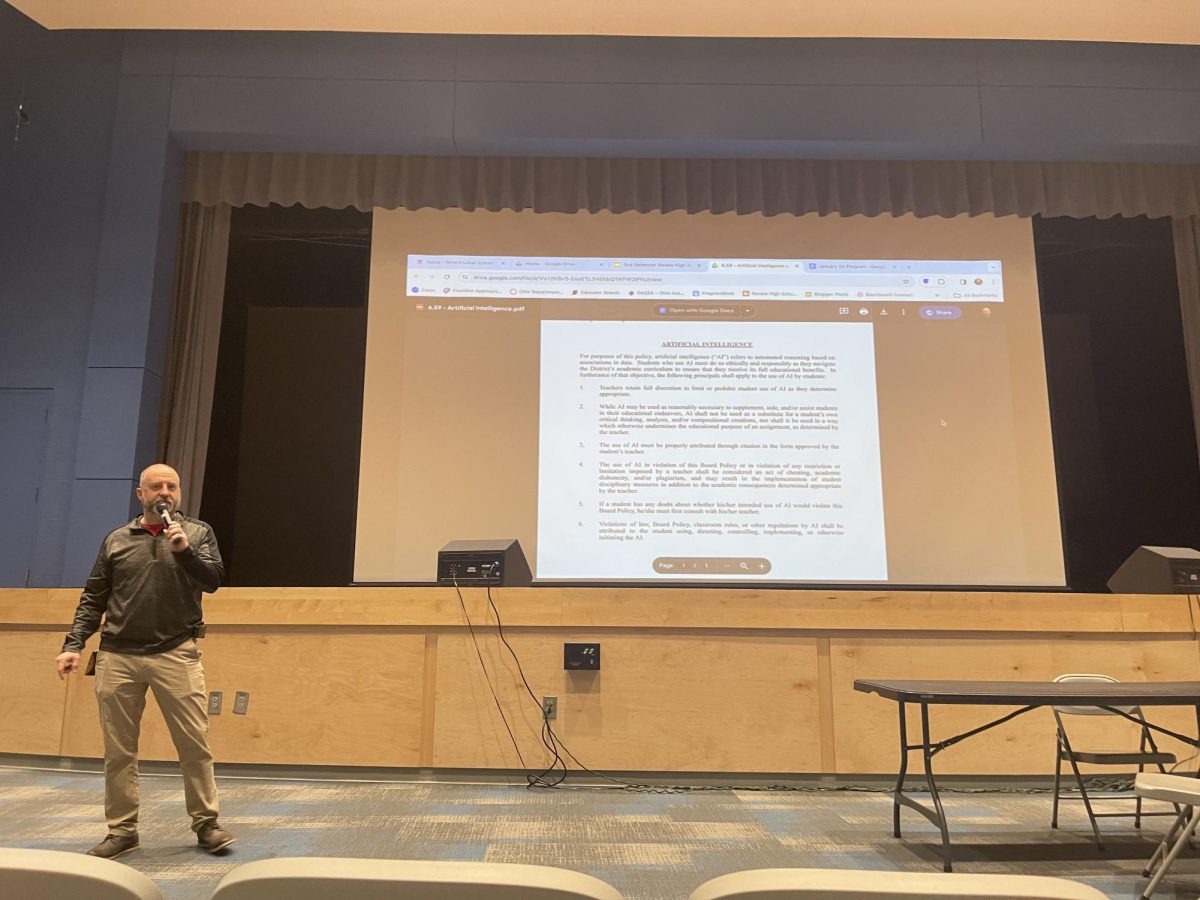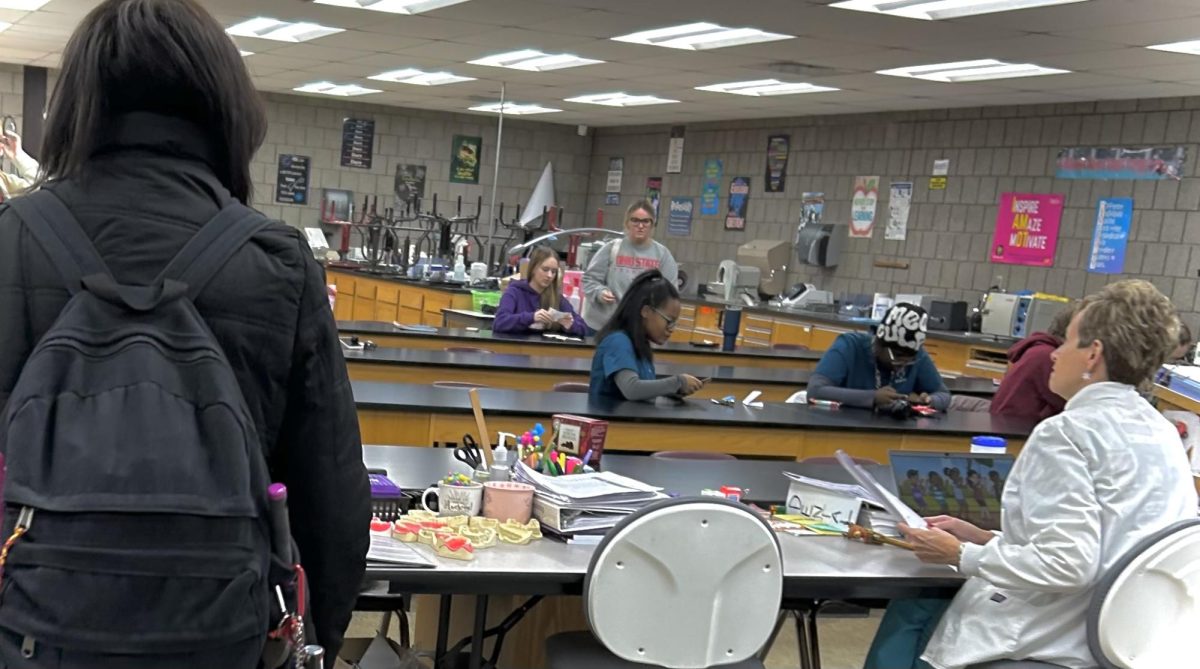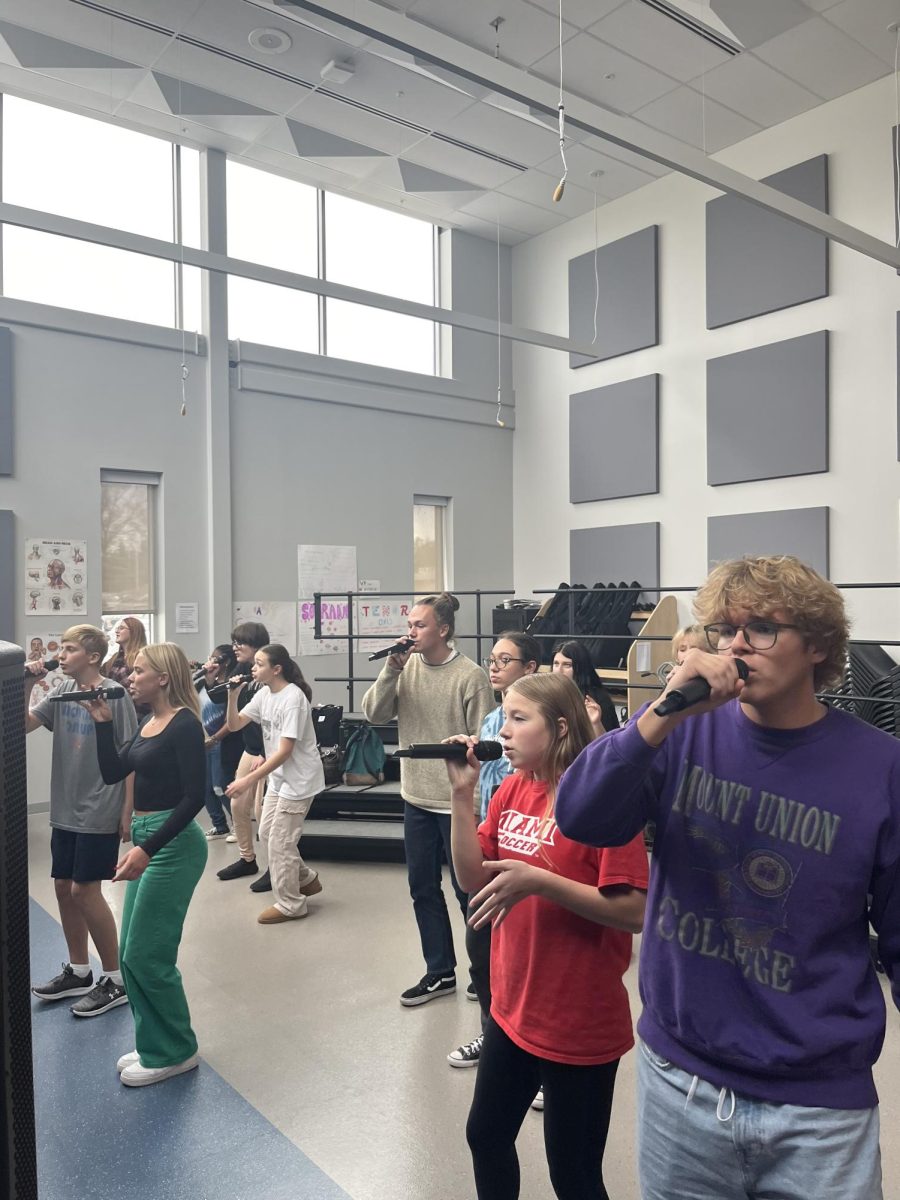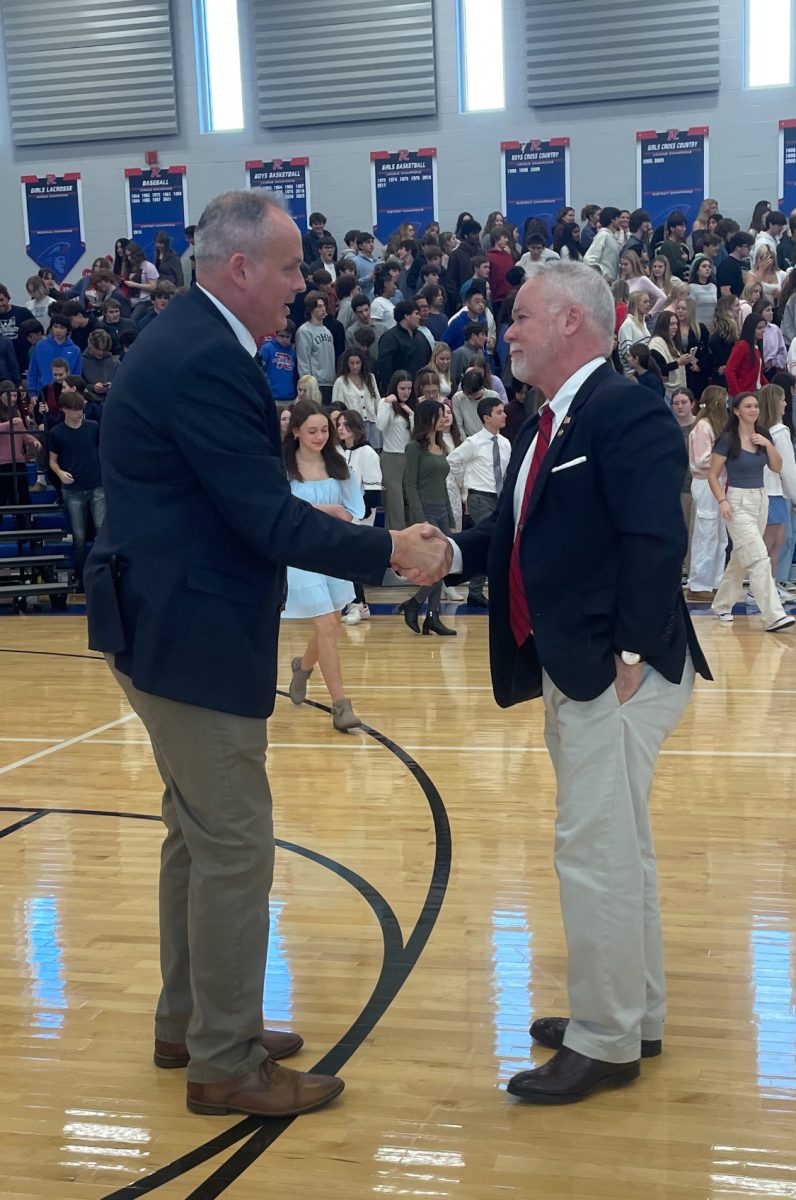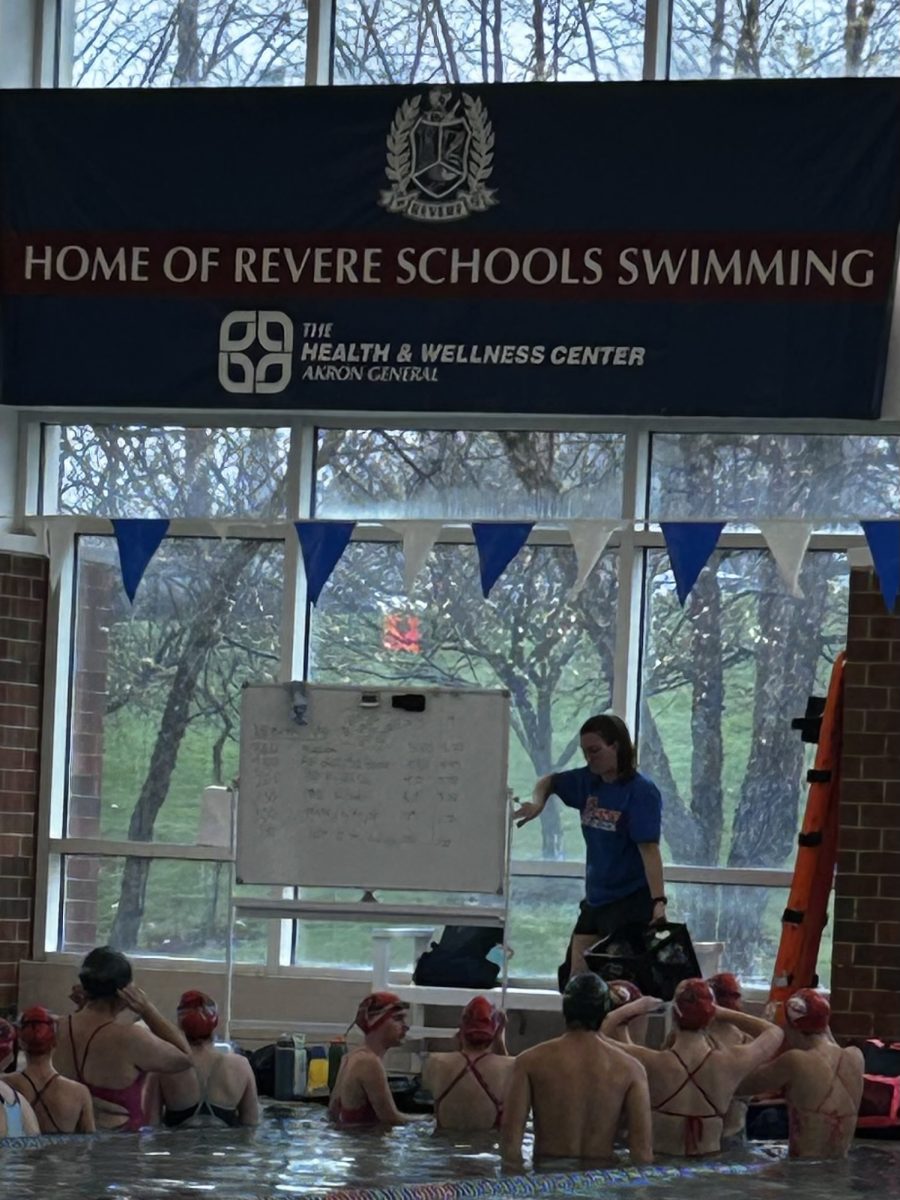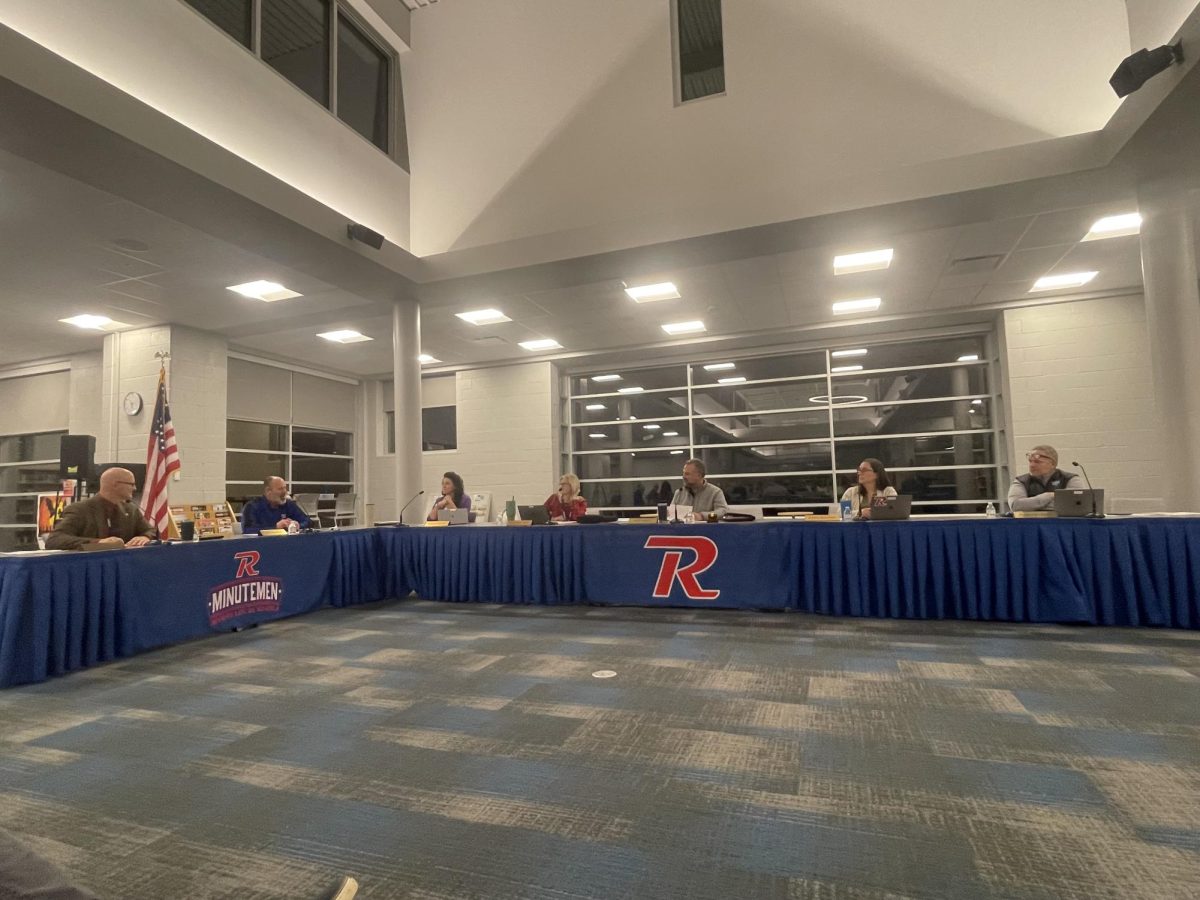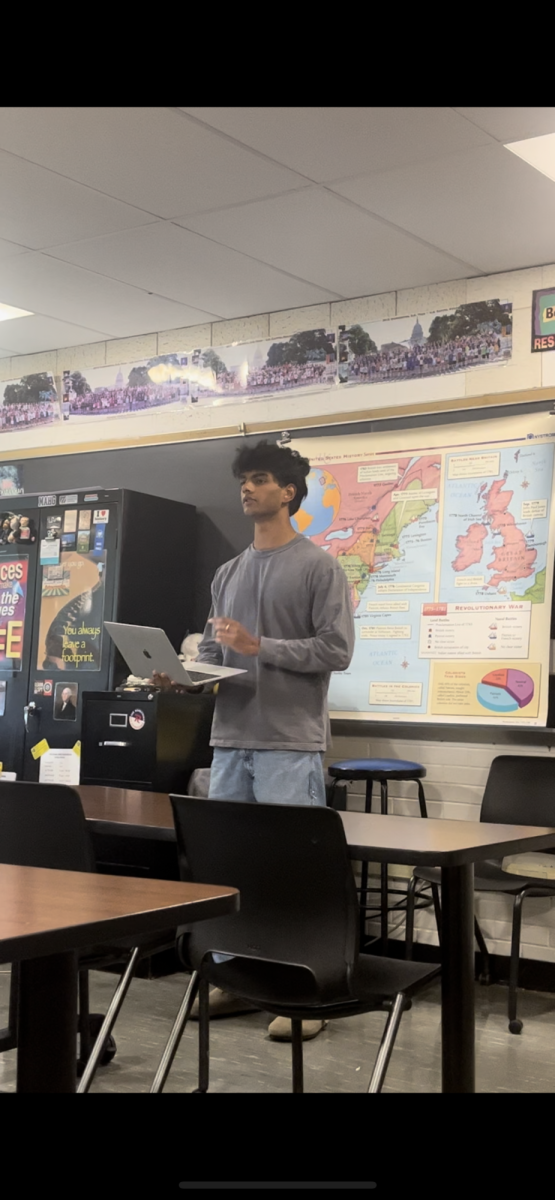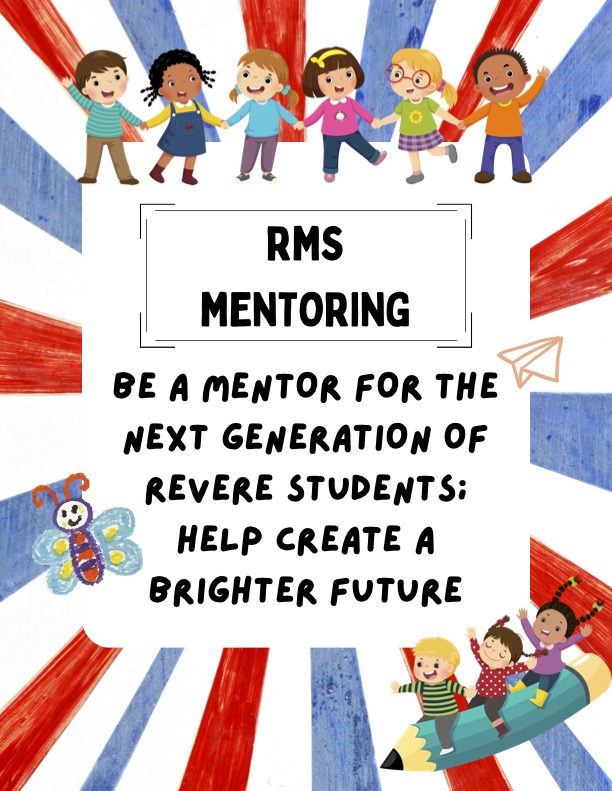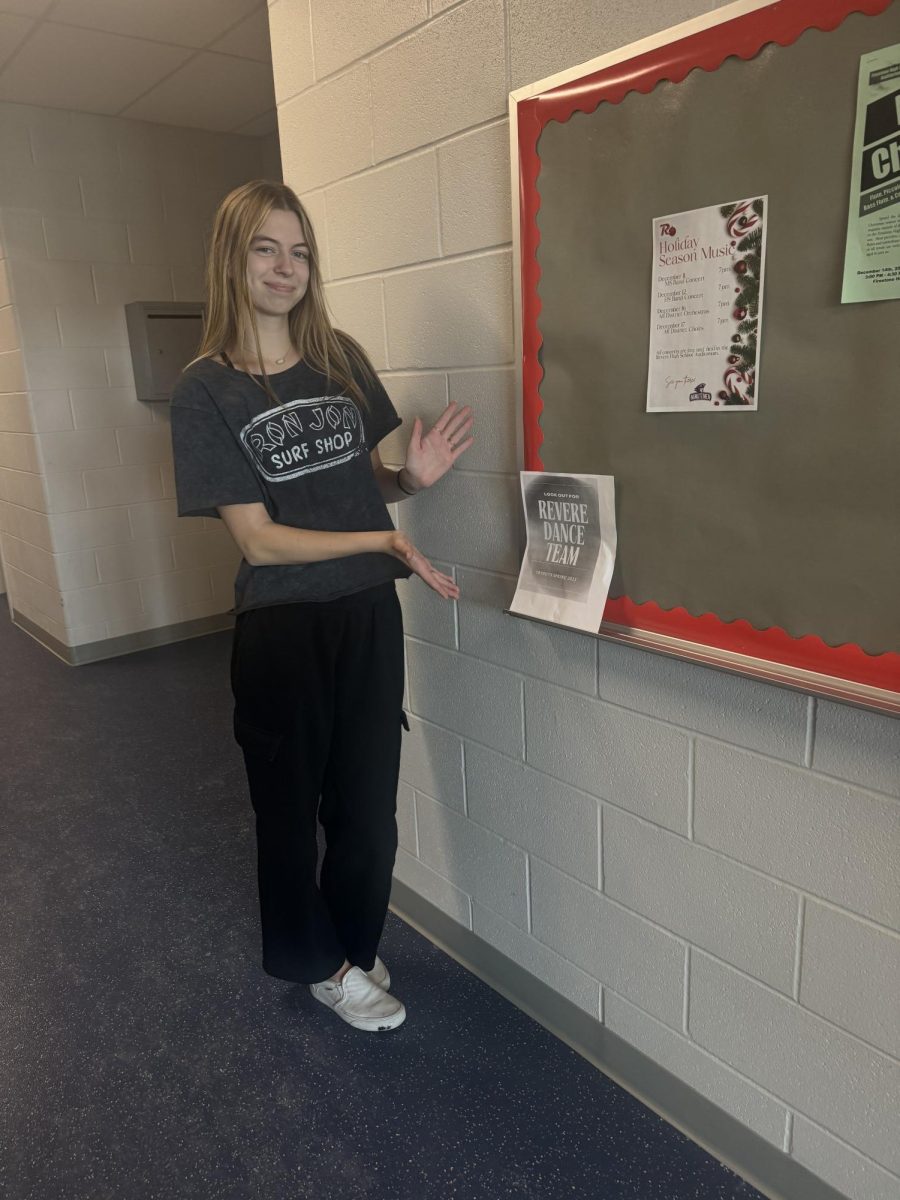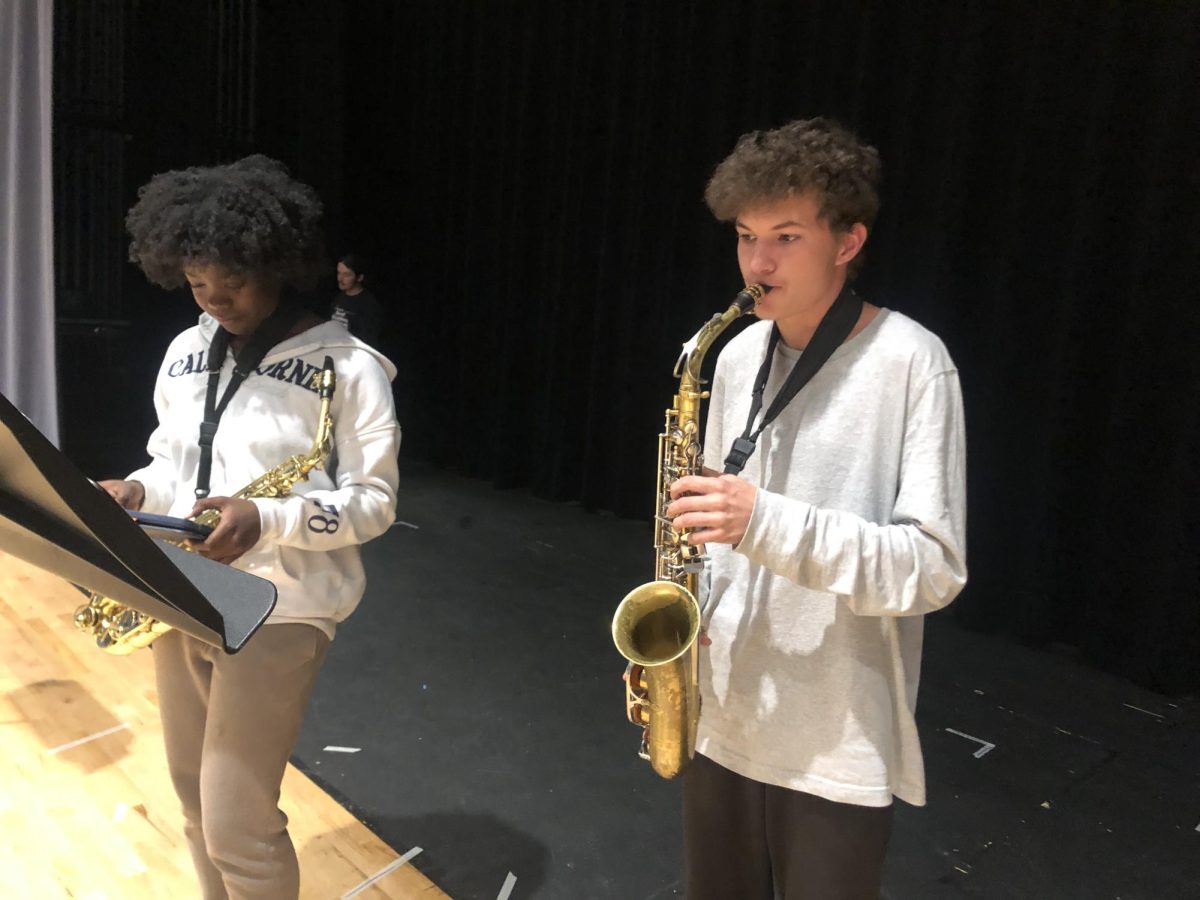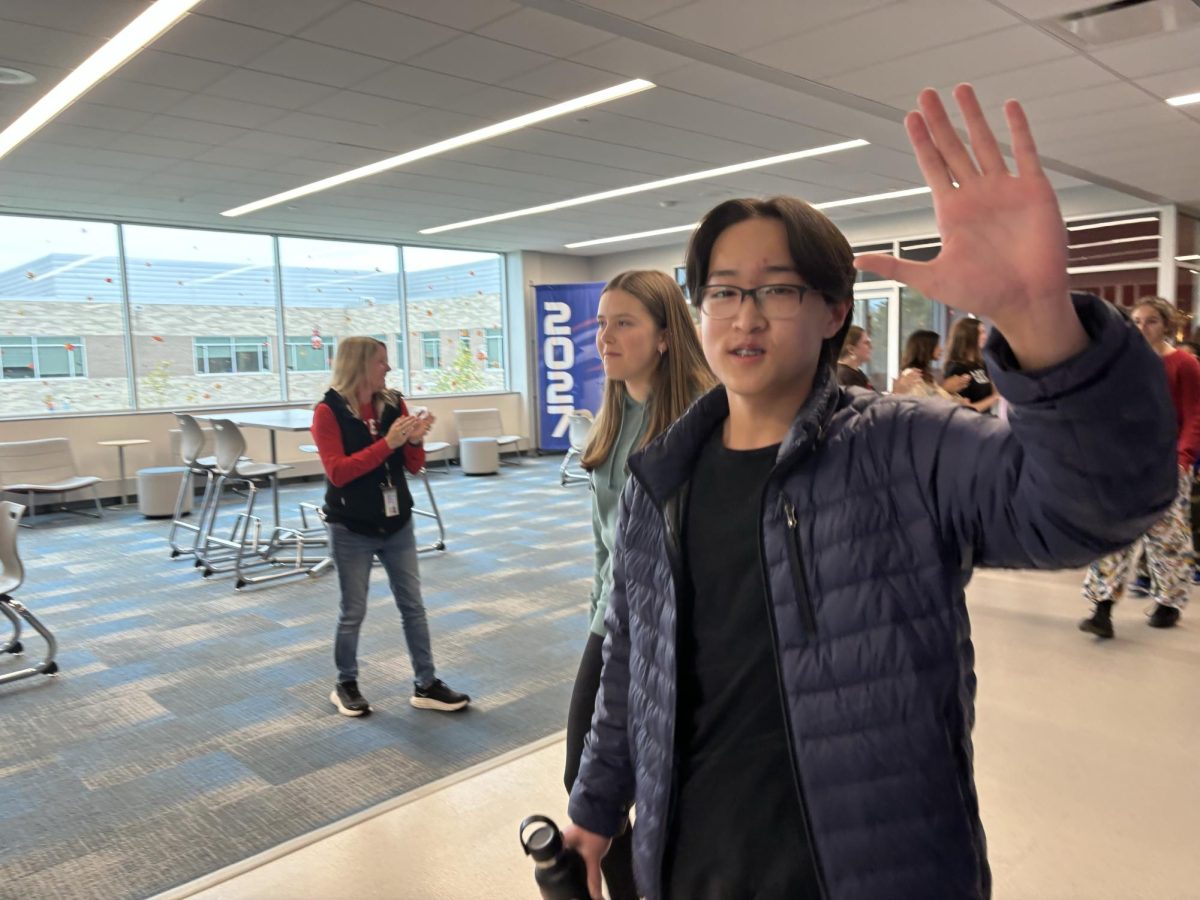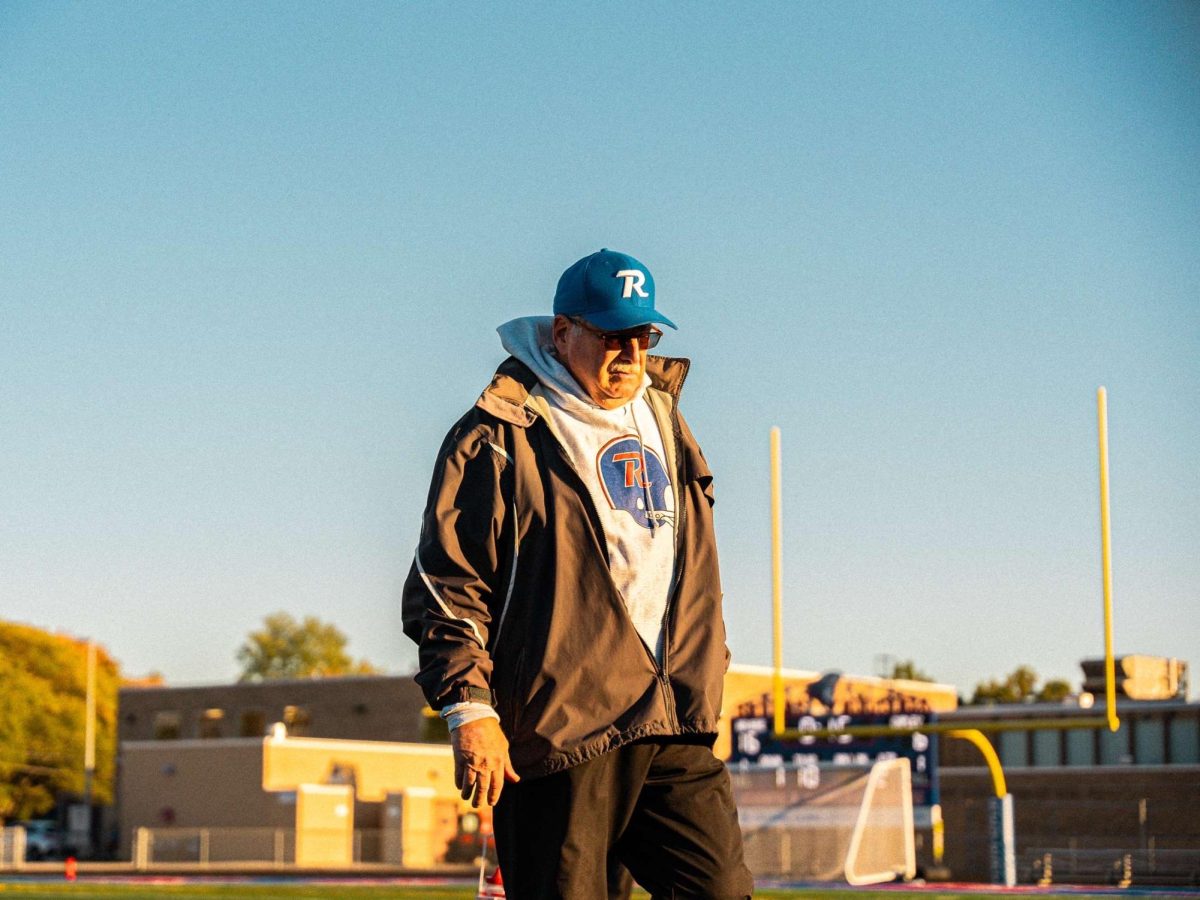The Revere Board of Education has created a policy regarding the use of Artificial Intelligence (AI) in the district to ensure that all members of the community understand what is acceptable.
Since September of 2022, the rise of generative AI—a tool which creates new content by imitating common patterns found in its databases—has caused educators of all subjects to begin implementing rules to address these instruments. The Board has adopted a policy addressing AI on December 12th, 2023, which outlined AI’s role in the district.
As the new policy indicates, students are not to use AI to “supplement, aid, and/or assist students in their academic work” nor use it as a “substitute for a student’s own critical thinking, analysis, and/or compositional creations.” Teachers have the authority to allow and prevent students from using AI in their classrooms, depending on the circumstances and assignments given. As long as a student has teacher approval, they can access various AI applications.
Just as some teachers from different departments are willing to engage with AI if the circumstances call for it, Revere’s new policy demonstrates the district’s willingness to interact with the tools. Revere Superintendent Dr. Michael Tefs shares a similar outlook regarding the implementation of AI, though there is still room to address further concerns.
“The district is going to have to have a policy that is about how our students are able to engage with the technology. . . . The district is believing right now that we want that policy to be a little more open than it would be restrictive,” Tefs said.
Due to generative AI’s recent rise, there is still room for these devices to improve over the next few years. As such, the current rules may not yet be set in stone, as the policy committee can readjust the policy to properly address future developments the tools may have.
“We’re just trying to keep up with [the technology]. . . . I wouldn’t be surprised if the Al policy ends up before the policy committee annually and gets a little tweak here and there as we continue to learn more about the technology and its impact on a public school,” Tefs said.
The development of policies, including the current AI one, is not a simple process. Schools must consult both the policy committee—which is typically made up of the superintendent, the treasurer, two Board members and the assistant superintendent—and legal counsel. The Board of Education will get a first read on the policy before it returns to editing and tweaking as needed. Then, the policy committee presents the finalised draft to the full Board.
“We have a law firm out of Cincinnati—Pepple and Waggoner—that writes our policies. When you get it to the Board, . . . the Board will do a first rating. And the reason they do that is it allows the constituency to weigh in on that. The Board gets to hear from the entire community, what they feel [and] think about that particular policy. And then thirty days later, they’ll approve it, or they might table it just to say we need more time [to revise]. . . . [Then] we take a look at it, maybe one more tweak, and we take it to the full Board,” Tefs said.
Generative AI’s uprise and swift advancements were the reason for schools and teachers addressing the tools. With it taking information from people around the world and dishing out the most common of answers, some suggest generative AI is unreliable and biased. Despite these claims, Revere had not addressed generative AI in its policy, thus allowing students to use the tool under teacher allowance.
“Students are going to go home and they’re going to use generative AI anyway. So in some environments, it’s not necessary or appropriate. And when I say environments, I mean that particular classroom; in some classrooms, it’s incredibly necessary. We didn’t want to push everyone saying that you had to block [it] and we didn’t want to push everybody and say you had to accept it,” Tefs said.
Making a new policy takes teamwork and the collaboration of the policy committee, legal counsel and the Board of Education. The president of Revere’s Board, Keith Malick, agreed to the adoption of the AI policy in order to guide staff and students, letting the community know what is and is not acceptable.
“We’re trying to stay ahead of the curve. [AI is] out there. We can’t ignore it, so we addressed it through a policy so that it gave guidance to our teachers, our administrators, our students and their parents. If we were to ignore it, I don’t think that that’s [a] good direction, because it’s here. And we have to address it. We just chose to do it now versus later,” Malick said.
Over the past year, with generative AI’s boom in both popularity and effectiveness, administrators are unsure whether or not it will continue to develop and when. To ensure that the policies stay up-to-date, the Board will constantly revisit the policy and adjust it to better fit any concerns at that time.
“We’ve put forth our initial policy, but over time, as we learn more about AI as it relates to our student population and schools, we will be constantly reviewing that policy and making amendments or changes as necessary,” Malick said.
The primary concerns teachers and administrators have deal with students using AI to replace their ability to think and their creativity. Rather than using AI as a replacement, Malick suggests students use it as a tool, as stated in the official policy.
“We don’t want [AI] to be a substitute for our students. . . . Use it as a reference rather than as an aid. Don’t use it as [a] creative tool to do your work. . . . If you don’t know how to make a graph of some type, you ask for samples. But then you create the graph—you do that. The student does that. They don’t have AI prepare the graph and do the work,” Malick said.
Generative AI is the primary reason why academic institutions created policies either banning or embracing these tools; however, there exist other types of artificial intelligence, many of which are commonly used in everyday life. Revere High School’s principal Dr. Andy Peltz acknowledges this and recognizes the benefits AI has.
“Throughout discussions, [we’re] realising there has been a lot of AI that we’ve already been using for years, whether it’s a smart search through Google, or whether it’s spell check. . . . We have to sit there and go, ‘Okay, those tools aren’t as scary and exciting’,” Peltz said.
Though AI has several benefits such as smart search and grammar correction, there are still times when the tools are unreliable. With educational professionals speaking out about how AI is wrong in some cases, many worry that because AI is a device, students will trust the devices over their cognitive abilities.
“I love the idea of smart searches and getting suggestions for grammar and rewriting sentences to sound more polished. [What] I get nervous about is that people will trust their own thinking process less and automatically assume [that] because it came from a computer, it has to be right. One of the biggest things we’ve gotten from other districts and education professionals I talked to is [that] AI is wrong a lot of times. So it’s the idea [that] if we’ve not vetted it and reread it and verified [it], all we do is perpetuate misinformation,” Peltz said.
The discussion surrounding AI’s place in education and Revere’s Board policy will proceed as society continues to better understand the tools. If necessary, the Board may make adjustments to the district’s rules and regulations to address concerns regarding the devices.
To see the official policy, click HERE.

